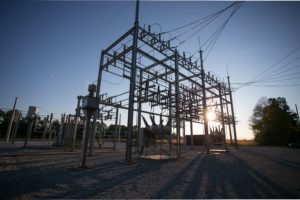Net Metering: The Best Kept Secret of Solar
Net metering is an opportunity for homeowners to have a consistent power source—even when the sun isn’t shining. Think about it. What if homeowners could only benefit from the solar power that is being generated right then? Not very effective. Net metering allows excess energy (usually generated in the afternoon hours) to be fed into your local electric grid. It’s a holding tank. The produced electricity won’t go to waste. The process also works in reverse, which is why it’s so beneficial for solar owners. If it’s the middle of the night in December when there’s no trace of sunlight around, you can draw back electricity easily. This process regulates the flow of energy into your home and makes solar energy worthwhile.
Why do states offer it?
Although the right sized system will usually produce enough electricity to meet your needs, the amount produced won’t always be consistent. Summer months are prime for energy production. However, if left solely to the current sun rays, you may find your power switching on and off during the holiday season.
In order to create some equilibrium, 41 states mandate net metering rules. This is the way that states can compensate homeowners for having solar. Two other states permit net metering. Most other states that don’t have net metering options have secondary options that make solar worth the investment.
Do I get an extra paycheck with net metering?
Not in the form of cash. With net metering, you can receive energy credits. These credits allow you to pull back energy on cloudy days. If you overproduce electricity one year, some states will allow you to roll over credits gained while others will reduce them.
Net metering is the catch-all with solar power. The sun may not always be shining, but electricity is always available. Check out a state-by-state guide to find out if net metering is an option in your area.



